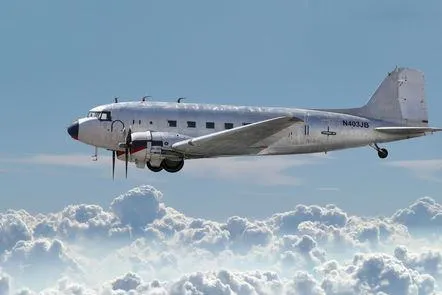
ABC of Flight Mechanics: How Do Planes Fly? 
This course will teach you the basics of flight mechanics and how planes fly. You will learn about lift, drag and propulsion, and longitudinal stability, as well as how to calculate a climb gradient or take-off distances. You will gain a better understanding of the physics of flying and how to apply it to aeroplanes. Suitable for undergraduate students in aerospace engineering, trainee and senior pilots, journalists, and professionals in the aviation sector. ▼
ADVERTISEMENT
Course Feature
![]() Cost:
Cost:
Free
![]() Provider:
Provider:
Futurelearn
![]() Certificate:
Certificate:
Paid Certification
![]() Language:
Language:
English
![]() Start Date:
Start Date:
Self paced
Course Overview
❗The content presented here is sourced directly from Futurelearn platform. For comprehensive course details, including enrollment information, simply click on the 'Go to class' link on our website.
Updated in [May 25th, 2023]
This course provides an introduction to the basics of flight mechanics and how planes fly. It covers the laws of physics that apply to airplanes, important concepts in aviation such as lift, drag and propulsion, and longitudinal stability. It also explains how to calculate a climb gradient or take-off distances.
Possible Development Directions:
This course provides a great foundation for further study in the field of aviation. Learners can explore more advanced topics such as aircraft design, aerodynamics, and flight control systems. They can also gain a deeper understanding of the physics of flight and the mathematics behind it.
Related Learning Suggestions:
For those interested in a career in aviation, this course is a great starting point. Learners can also benefit from courses on aircraft design, aerodynamics, and flight control systems. Additionally, they can explore related topics such as meteorology, navigation, and air traffic control.
[Applications]
Upon completion of this course, participants can apply their knowledge of flight mechanics to better understand the principles of aircraft design, operation, and maintenance. They can also use their understanding of the physics of flight to improve their piloting skills and safety. Additionally, participants can use their knowledge to develop more efficient aircraft designs and to better understand the effects of weather on aircraft performance.
[Career Paths]
1. Aerospace Engineer: Aerospace engineers design, develop, and test aircraft, spacecraft, satellites, and missiles. They are responsible for ensuring that these vehicles meet safety and performance standards. Aerospace engineers are also involved in the development of new technologies, such as electric propulsion systems and autonomous flight systems. The demand for aerospace engineers is expected to grow in the coming years due to the increasing demand for air travel and the development of new technologies.
2. Pilot: Pilots are responsible for the safe operation of aircraft. They must be knowledgeable in the principles of flight, navigation, and aircraft systems. Pilots must also be able to make quick decisions in order to respond to changing conditions. The demand for pilots is expected to increase in the coming years due to the growth of the aviation industry.
3. Air Traffic Controller: Air traffic controllers are responsible for the safe and efficient movement of aircraft in the airspace. They must be knowledgeable in the principles of air traffic control, navigation, and aircraft systems. Air traffic controllers must also be able to make quick decisions in order to respond to changing conditions. The demand for air traffic controllers is expected to increase in the coming years due to the growth of the aviation industry.
4. Aviation Maintenance Technician: Aviation maintenance technicians are responsible for the maintenance and repair of aircraft. They must be knowledgeable in the principles of aircraft systems, maintenance, and repair. Aviation maintenance technicians must also be able to make quick decisions in order to respond to changing conditions. The demand for aviation maintenance technicians is expected to increase in the coming years due to the growth of the aviation industry.
[Education Paths]
1. Aerospace Engineering: Aerospace engineering is a field of engineering that focuses on the design, development, testing, and production of aircraft, spacecraft, and related systems. It is a rapidly growing field with many opportunities for advancement. Developing trends in this field include the use of advanced materials, such as composites, and the development of autonomous systems for aircraft and spacecraft.
2. Aviation Management: Aviation management is a field of study that focuses on the business and operational aspects of the aviation industry. It covers topics such as airport management, airline operations, air traffic control, and aviation safety. Developing trends in this field include the use of data analytics to improve efficiency and the use of drones for commercial applications.
3. Aviation Maintenance: Aviation maintenance is a field of study that focuses on the maintenance and repair of aircraft and related systems. It covers topics such as aircraft inspection, troubleshooting, and repair. Developing trends in this field include the use of advanced technologies, such as 3D printing, and the use of artificial intelligence for predictive maintenance.
4. Pilot Training: Pilot training is a field of study that focuses on the skills and knowledge required to become a pilot. It covers topics such as aircraft systems, navigation, and flight operations. Developing trends in this field include the use of virtual reality for training and the use of advanced simulation technologies for pilot training.
Course Provider

Provider Futurelearn's Stats at AZClass
Discussion and Reviews
0.0 (Based on 0 reviews)
Explore Similar Online Courses

Creative Writing for Beginners: Bringing Your Story to Life

Building Containerized Applications on AWS

Python for Informatics: Exploring Information

Social Network Analysis

Introduction to Systematic Review and Meta-Analysis

The Analytics Edge

DCO042 - Python For Informatics

Causal Diagrams: Draw Your Assumptions Before Your Conclusions

Whole genome sequencing of bacterial genomes - tools and applications

How to become a commercial pilot

Ultimate Guide to Becoming a Pilot

How To Become a Pilot
 Related Categories
Related Categories
Quiz
 Submitted Sucessfully
Submitted Sucessfully
1. What is the main purpose of this course?
2. Who is this course suitable for?
3. What topics will be covered in this course?


Start your review of ABC of Flight Mechanics: How Do Planes Fly?